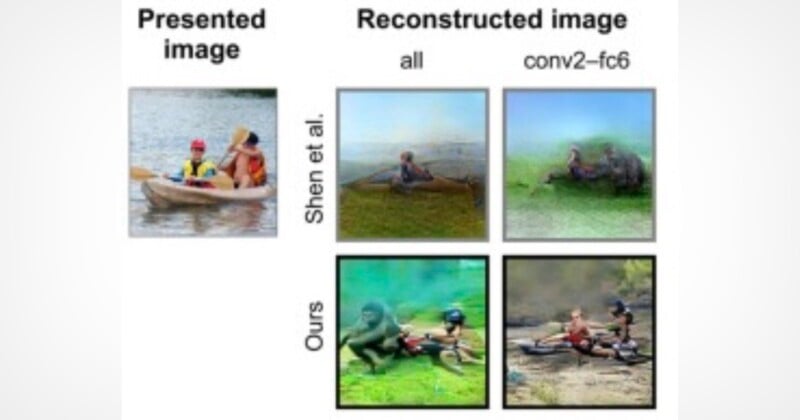The Implications of AI Recreating Images From Our Mind is Frightening
![]()
Earlier this week, PetaPixel reported on a remarkable story that scientists AI-generated images from peoples’ brains with “75 percent accuracy.”
I see a lot of incredible technology stories here in my role as Senior News Editor of PetaPixel — but this one gave me pause.
Just to recap, this research retrieved images from a human’s brain; not an image that the subject was looking at, but rather an image that was stored in their brain that the test subjects had seen earlier on and simply recollected.
Recreating images from brain activity is usually only possible when a subject is actually seeing the image with their own eyes — what we are seeing here is something of a breakthrough.

The images — which were made from a neural signal translator program — are still not great, but it’s likely the tech will improve, and then what? What if it becomes feasible to exactly replicate an image that you can conjure in your mind?
Say you witness a murder and you get a real good look at the suspect. In the future, will a police officer simply retrieve the image from your mind using brain waves and AI technology?
No more sketch artist impressions drawn from a description, but instead this could be a bona fide “real-life” image that your brain is transmitting into a hard copy.
Like Something From a Sci-Fi Movie
Currently, this technology is done via a functional magnetic resonance imaging (fMRI) machine which measures brain activity by the tiny changes in a person’s blood flow.
“We can use these kinds of techniques to build potential brain-machine interfaces,” Yu Takagi, a neuroscientist at Osaka University in Japan, tells The Scientific American.
Of course, the scientists working on this technology hope that it will help those who struggle to communicate. For example, someone who has had a stroke or has motor neuron disease.
Advances in AI image generators are what have spurred this research. The AI models (and I believe it’s Stable Diffusion they are using) learn the subtle patterns in a person’s brain activation and how that corresponds to an image in their mind.
It’s something that, to me, seems scarcely believable and sounds more like a plot of a sci-fi movie, like Tom Cruise in Minority Report.
Will the photographers of tomorrow be making pictures in their minds and sending them to their computers via brainwaves? I hope not, but it could happen.